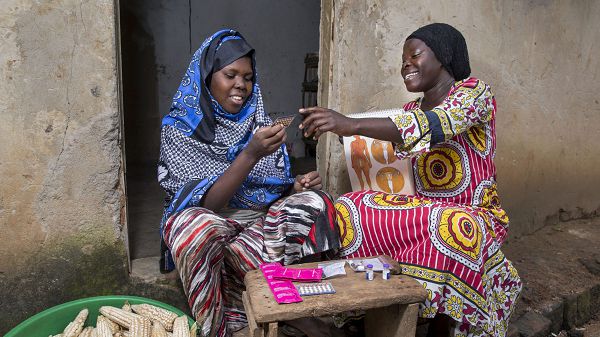
Tackling sexual, reproductive health: Parent-to-child communication critical
At age 11, when Gracie (not real name) started menstruating, she did not know what was happening to her body.
“I thought I was bleeding because I had a sore inside me. I felt ashamed to let anyone know so I just grabbed a bottle of rubbing alcohol and gentian violet with the intention to try and dress the sore. Luckily, my grandmother caught me just in time and stopped me from inserting the ball of cotton wool soaked with gentian violet into my genitals,” she narrated.
Advertisement
“I was pressurised to have my first sexual encounter at age 12,” recounts Ohui (not real name). “My three best friends who were already in sexual relationships influenced my decision when my boyfriend started demanding sex. My parents never spoke to me about sexual relationships. I guess I was only lucky that I did not become pregnant or contract an infectious disease.”
These were some of the experiences narrated by participants in a two-day training programme on ‘Parent-to-Child Communication on Sexual and Reproductive Health’, held in Sunyani in the Bono Region.
Training

Dr Abraham Nyarko (standing) explaining a point to the participants during the training.
The training, organised by the United Nations Population Fund (UNFPA) as part of its Canadian funded ‘Joint UN Programme to Empower Adolescent Girls’, was to equip parents selected from communities in the Bono, Bono East and Ahafo regions with the skills on how to communicate with children, particularly adolescents, on their sexual reproductive health.
It was also to update their knowledge of Adolescent Sexual Reproductive Health (ASRH), gender-based violence and sexually transmitted infections (STIs).
Values
A communication consultant, Dr Abraham Nyarko, who facilitated the training, stressed that children should be taught the right values from infancy to help them grow into responsible adults.
Childhood, he said, was a stressful period as children even got confused about their sexuality.
Dr Nyarko explained that understanding one’s personal perception and values was essential for parent-to-child communication.
Sources of values formation were family, religion, education, workplace, personal traits, economic reasons, society and peer groups, he stated.
Adolescence
With regard to adolescents, Dr Nyarko indicated that they were a special group of people who faced many difficulties.
Challenges faced by adolescents, he said, included physiological changes, teenage pregnancy, menstrual problems drug/substance abuse, rape, gender-based violence, child marriage, social media influence and lack of parental care.
“Indeed, many young people struggle with mental issues, mainly concerning relationships, and parents have to be comfortable in dealing with these issues,” he stressed.
Puberty
He also observed that puberty also presented difficult times for adolescents so parents needed to give adequate information before and during the period.
Girls are often not adequately prepared for their menstruation and tend to handle the confusion surrounding this significant period of their lives on their own.
Parents, he said, expected physical changes during puberty and became concerned when the changes were delayed, yet they failed to communicate these changes and the implications for the adolescents’ lives.
“Adolescents need to understand that puberty starts because of sex hormones and this lead to a lot of changes, both inside and out. We can’t fail as parents to give adequate knowledge on sexuality and personal hygiene to our children,” Dr Nyarko stated.
He said many young people engaged in risky behaviours unaware that those acts exposed them to sickness, “and parents never know this”.
Dr Nyarko cited, for instance, that many boys shared the same underwear, towels and clothing with friends in schools, and explained that STIs were easily transfered through this practice.



